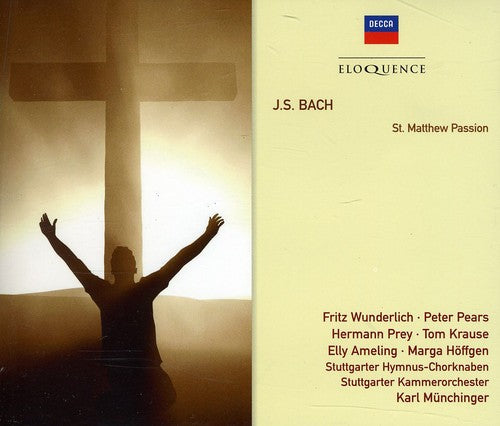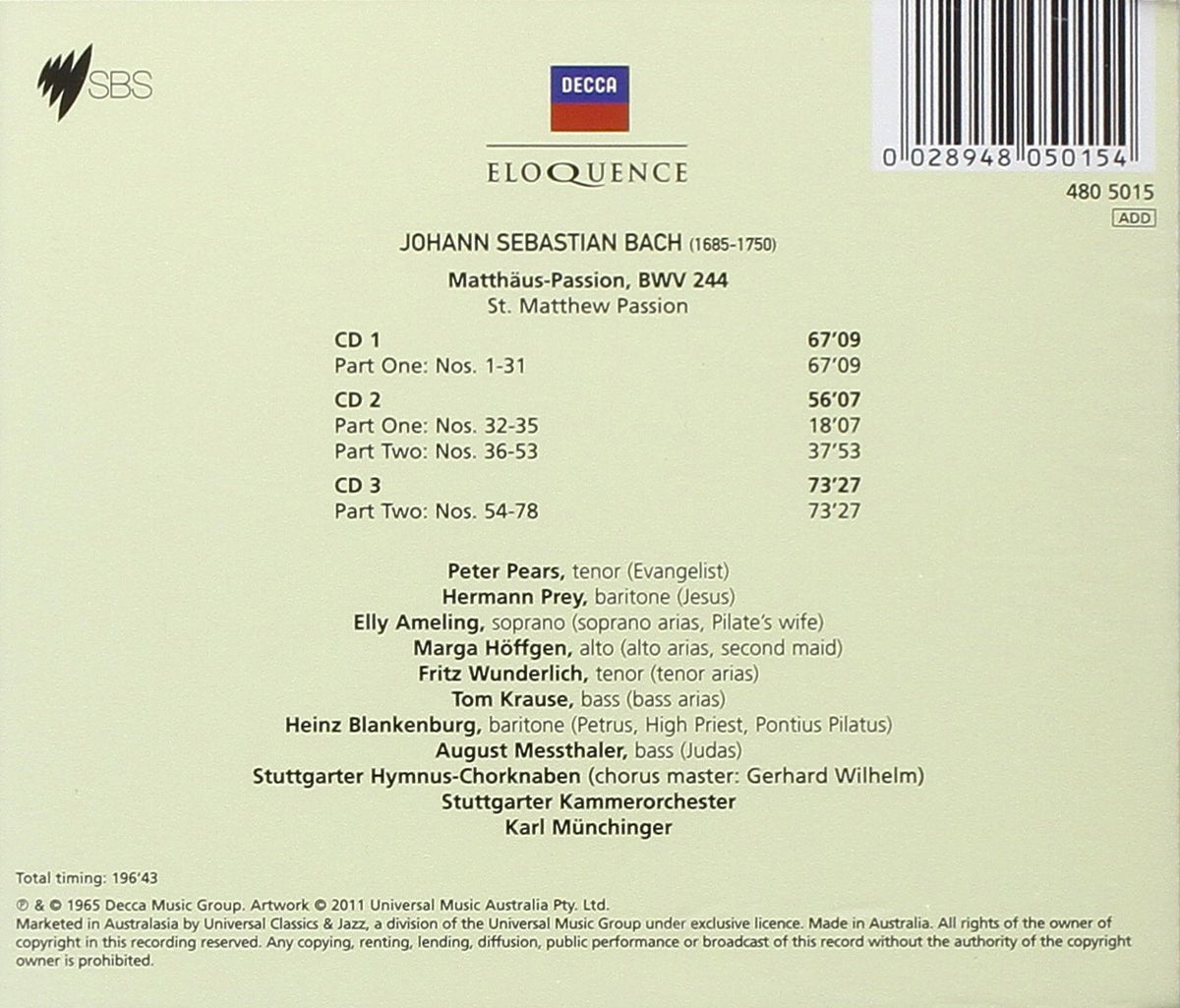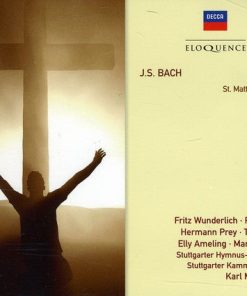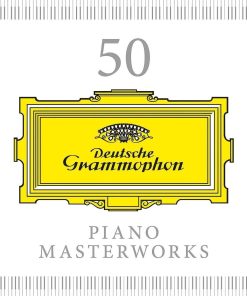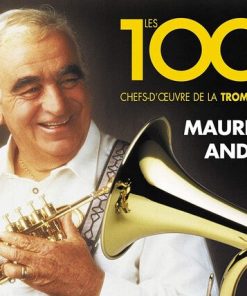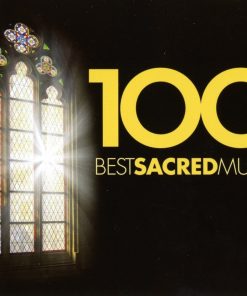Bach: St Matthew Passion – Karl Munchinger, Peter Pears, Elly Ameling, Fritz Wunderlich (3 CDs) DECCA
$ 11,99 $ 7,19

Although Bach wrote four (or five) settings of the Passions only two have survived; the St. Matthew Passion (Matthäus-Passion) and the St John Passion. The St. Matthew Passion was probably first performed on Good Friday (11 April) 1727 in the Thomaskirche in Leipzig, where Bach was the Kantor of the School and Directoris Chori musici of Leipzig. He revised it by 1736, performing it again on 30 March 1736, this time including two organs in the instrumentation. He further revised and performed it again on 24 March 1742. Considered to be one of the greatest pieces of sacred music in Western music, it has been recorded many times, and this version, recorded in July 1964 has remained one of the reference recordings of the work, not least for the inclusion of Fritz Wunderlich as performer of the tenor arias, as well as the rest of the supreme vocal cast which includes Pears, Prey, Ameling and Krause.
Booklet notes are by the producer of this recording, the great Ray Minshull, and full texts, together with a new English translation are included.

Münchinger’s version is consistently fresh and alert, and it has the degree of authenticity of its period (1965) – although much has happened to Bach performances since then. All the soloists are excellent, and the recording is first class’ Penguin Guide to CDs
‘Elly Ameling [is] always sweet-toned and sensitive and Peter Pears outstanding as the Evangelist in St. Matthew Passion. Münchinger’s […] direct and responsive reading makes a refreshing impact when the choral singing is so impressive and the sound so vivid.’ Gramophone

J. S. BACH
St. Matthew Passion
Peter Pears (Evangelist)
Hermann Prey (Jesus)
Elly Ameling (soprano arias, Pilate’s wife)
Marga Höffgen (alto arias, second maid)
Fritz Wunderlich (tenor arias)
Tom Krause (bass arias)
Heinz Blankenburg (Petrus, High Priest, Pontius Pilatus)
August Messthaler (Judas)
Stuttgarter Hymnus-Chorknaben
Gerhard Wilhelm, chorus master
Stuttgarter Kammerorchester
Karl Münchinger
Fast Shipping and Professional Packing
Due to our longstanding partnership with UPS FedEx DHL and other leading international carriers, we are able to provide a range of shipping options. Our warehouse staff are highly trained to pack your goods exactly according to the specifications that we supply. Your goods will undergo a thorough examination and will be safely packaged prior to being sent out. Everyday we deliver hundreds of packages to our customers from all over the world. This is an indication of our dedication to being the largest online retailer worldwide. Warehouses and distribution centers can be located in Europe as well as the USA.
Orders with more than 1 item are assigned processing periods for each item.
Before shipment, all ordered products will be thoroughly inspected. Today, most orders will be shipped within 48 hours. The estimated delivery time is between 3-7 days.
Returns
The stock is constantly changing. It's not entirely managed by us since we are involved with multiple parties such as the factory and our storage. The actual stock can fluctuate at any time. Please understand it may happen that your order will be out of stock when the order is placed.
Our policy is valid for 30 days. If you haven't received your product within 30 days, we're not able to issue either a return or exchange.
You are able to return a product if it is unused and in the same condition when you received it. It must also still remain in the original packaging.
